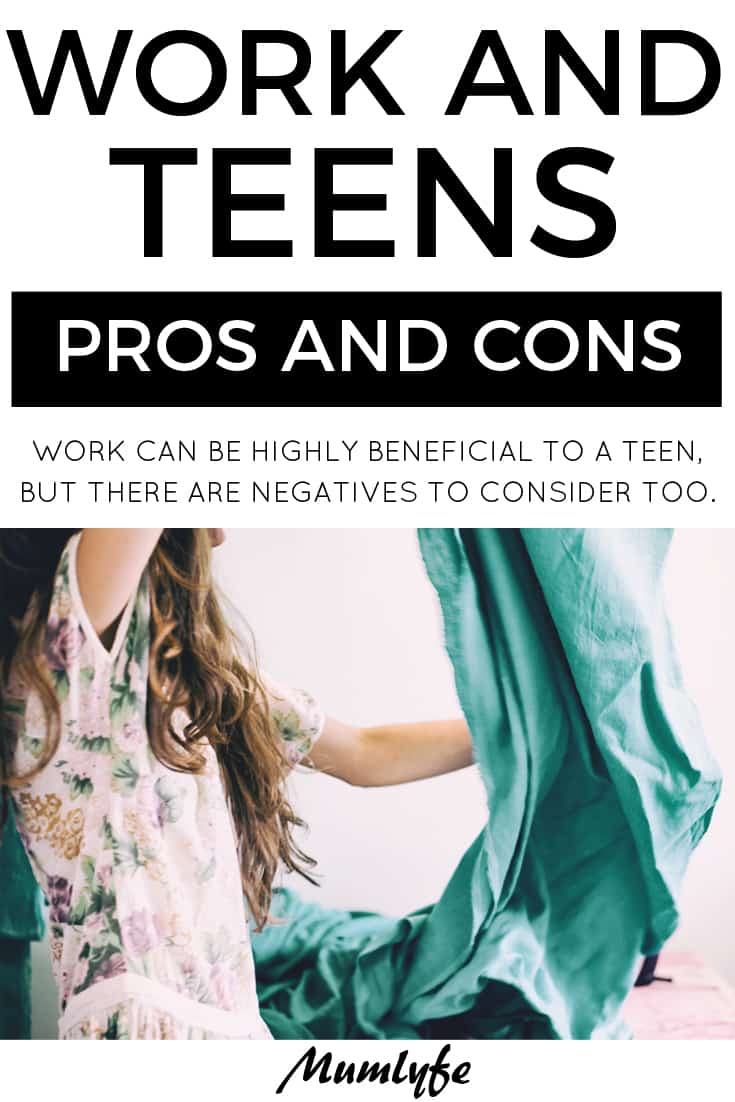There are plenty of benefits of work for teens. Your kid has reached the minimum age for working (which is lower than you might think – check here), and they desperately want a job. That’s a good thing, right? Or maybe they would rather walk over hot coals than get a job, but you feel otherwise… which might also be a good thing… possibly.
Either way, there are plenty of jobs out there for teens who want to work and there are just as many reasons why you might want them to.
The benefits of work for teens
1. Money, money, money
There are lots of great benefits to working when you’re a teen (read on!), but surely money has got to be at the top. It’s at the top for most of us, regardless of age. Having their own cash to spend on whatever they like is so important to growing a teen’s sense of confidence and responsibility. Note that this can be a massive negative too, though (see below!)
2. Financial education
You may wish to put some restrictions around how and when and what on your teen can spend their money, but make sure they have a fair percentage leftover just for them. They will have earned it.
It’s also wise to ensure that they are in control of any decisions made about their money, although you might act as adviser and sounding board. Once they are earning a decent amount, you may wish for them to contribute to the household bills (a great lesson in responsibility and one of life’s bigger reality checks), or it may be personal items that you prefer them to spend their money on. While pocket money gives us an opportunity to teach our kids about investing, saving and splurging, only a part-time job can give teens ‘real’ money to learn with.
This might help: How to talk to kids about money
3. Work skills for life
Many employers have great training programs for teens, but even if they don’t, a casual or part-time job when you’re young can teach valuable work skills. Even preparing to enter the workforce can teach your teen how to fill out an application, prepare a CV, write a cover letter and think about their strengths and value.
4. Valuable social skills
Our relationships with colleagues are different to those with friends and family. Learning to get along with co-workers and managers is a vital skill, and a good one to learn early. Diplomacy, teamwork, even the simple skill of doing what you’re told simply because you’ve been told by someone in authority (a skill so many of us parents struggle to get through to our kids), is important. Many of the connections your teen will make at work may go on to become mentors or references for many years. It’s also great for teens to develop friendships outside of the usual school crew.
5. Practising adult skills
So much of life is negotiable when you’re young, but this is not often the case when you are employed. Getting up and going to work on time, being independent and reliable – these are all necessary in adulthood and need practising when growing up.
Start young: 60+ ways for kids to make money outside of the home
6. Constructive use of time
There is plenty that a teen could be getting up to on a Friday night that a good part-time job will make less accessible. Fitting work in around school, homework and extra-curricular activities definitely keeps a teen busy – and that’s a good thing for most.
7. Work/life balance
It’s never too early to start learning how to keep work and life on an even keel. It’s a skill they will need for life. While school and work can sometimes impact on each other (no time for homework, tired after school but still have to go work, etc), these are valuable life lessons in responsibility and commitment that are great for a teen to learn to deal with early.
8. Inner confidence and resilience
When a teen takes their work seriously and does a good job, their confidence in their skills and capabilities grows. This tends to spill over into their school work and sporting life as well. By the same token, work life offers a teen plenty of challenges – there is generally no spoon-feeding in employment. Teens are often thrown in the deep end and quickly learn to rely on their inner resources to pick themselves up and keep trying. It helps when they have a solid cheer squad at home, urging them to try again and do better tomorrow.
9. Time management skills
If there’s one thing a job teaches all of us, it’s the ability to better manage our time. Just getting a teen to work on time consistently can be a learning curve. Keeping focused on the job and doing things in a timely manner is demanded by all employers. These are great skills for teens to learn and they will benefit them throughout their school life and beyond.
10. Future career
Your teen’s Christmas job may be the start of a career. My friend has been working for Woolworths for 32 years – she started packing shelves in the school holidays when she was 15 years old and now works in brand marketing. My brother has been with the same cinema company since he had a part time job at the candy counter when he was at uni – he now works in film distribution. You never know where an after-school or uni job will take you.
Get started here: 50+ jobs for teens that will benefit them for life
A few cons of work for teens
With all that good stuff above, it’s a wonder every teen in Australia isn’t working in some form or another. There are plenty of reasons why both teens and parents baulk at teens getting a job. Here are a few considerations:
1. Focus on studies or other commitments
Many families would prefer their teen focus on their school work and studying before they commit to a job. That’s fair enough – academic success is very important. Teens often have hours of their week committed to sport or other extra-curricular activities, leaving little time for work. Every teen needs down time, after all.
Try this: 5 tips to help you manage the chaos of extra-curricular activities
2. Plenty of time for the juggle
While many see the work/life balance a good skill to learn when you’re young, other parents would rather their child leave that kind of stress for later in life. It’s true that homework ebbs and flows for a kid and many work places are not flexible around exam time or when an assignment is due. It can be very stressful for a teen to juggle both responsibilities.
3. Negative experience of work
Sometimes the jobs available for a young teen are only available because no one else wants to do them. It’s true that someone has to do the menial jobs, but perhaps this will only give your teen a poor view of what work is all about. Kids have their whole lives ahead of them to work, so starting early may not be beneficial for everyone.
4. Drug-use
Research has found that marijuana (and presumably other drug) use is more prevalent amongst teens with jobs. They are hanging out with older kids, have plenty of their own money to spend, and are often out later at night than kids without jobs. Something to consider and be vigilant about if your teen starts working.
Does your teen work – do they enjoy it?
Image by Volha Flaxeco


